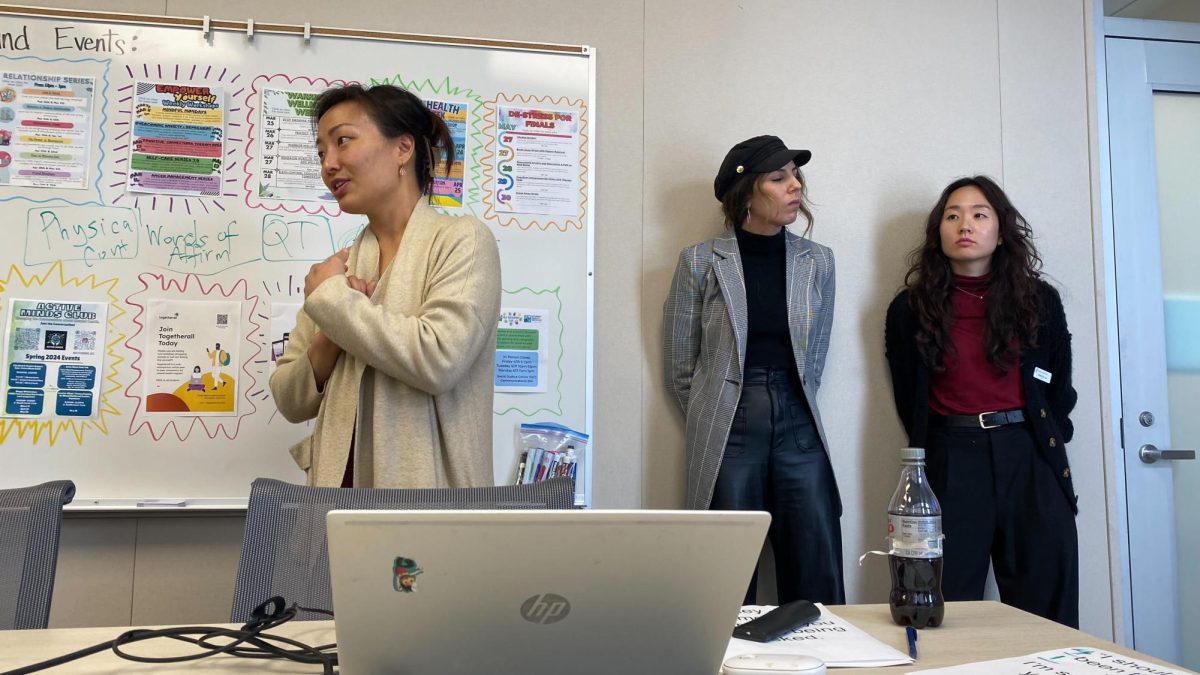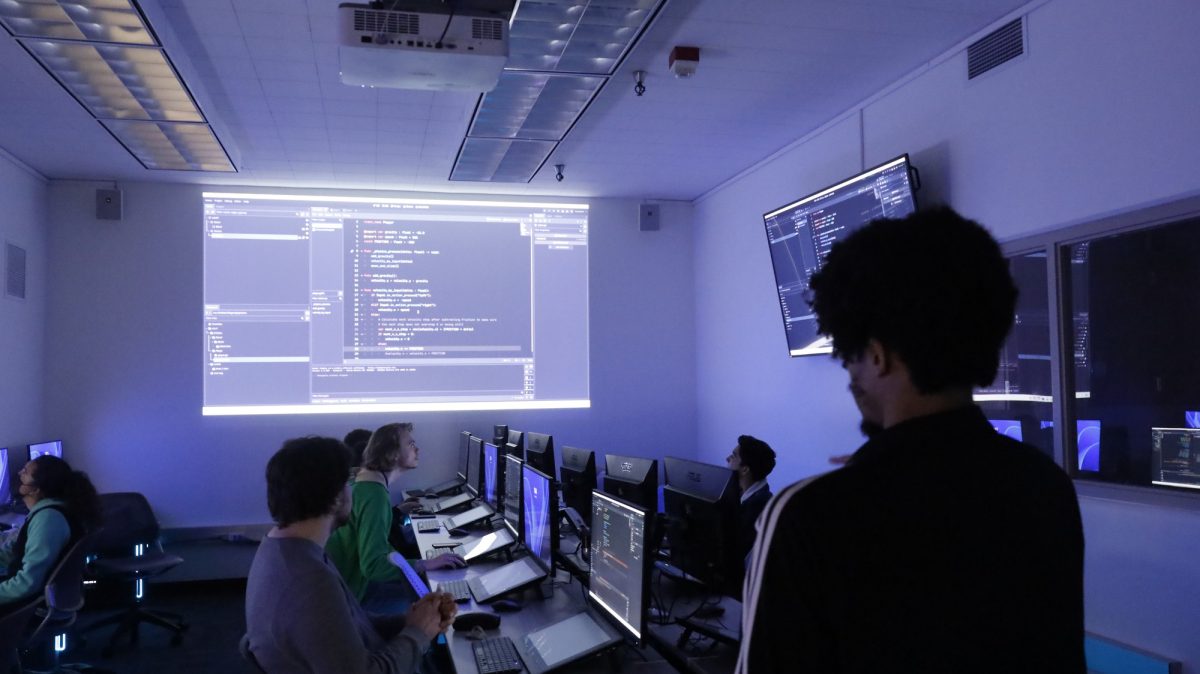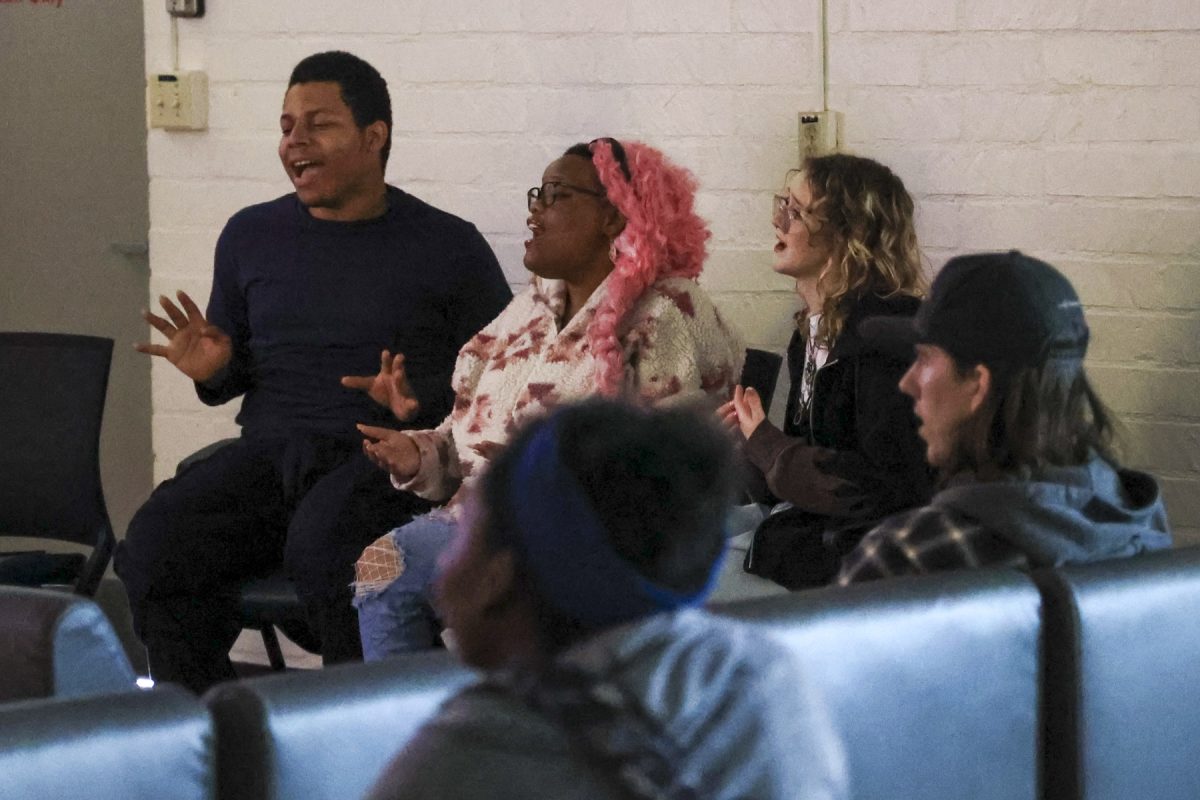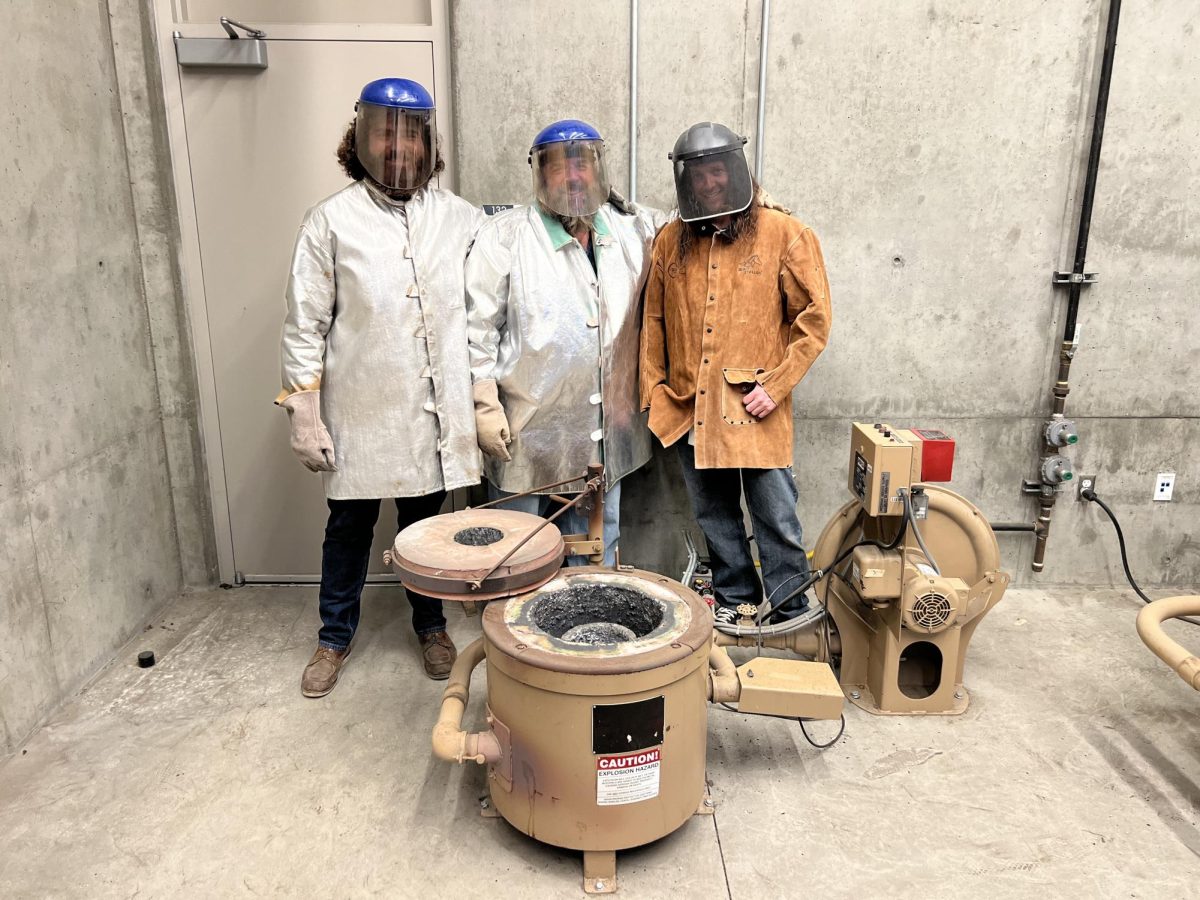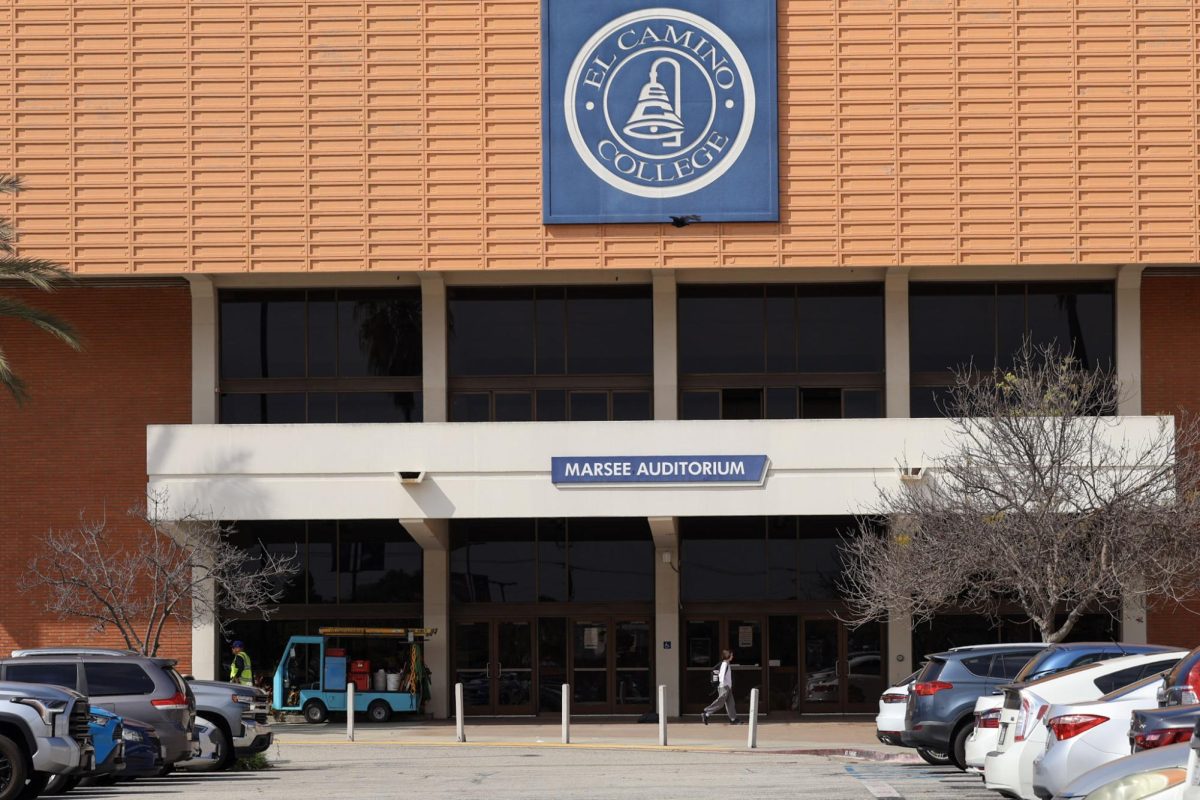Expressing regret. Accepting responsibility. Making restitution.
These were some of the “5 Apology Languages” that shocked the 10 students who attended the “Love & Sorry” workshop on Feb. 26 in the Health Center Conference Room at noon.
The workshop kicks off a relationship series hosted by Student Health Services, which will offer several discussions focused on relationships throughout the semester.
Victoria Kwon, who holds a doctorate in clinical psychology and has worked at the college for 13 years, led the workshop together with Josephine Lee and Illeanna Holmgren, both graduate externs with a master’s degree in psychology.
The workshop introduced the “5 Love Languages” and “5 Apology Languages” created by Gary Chapman, a talk show host, marriage counselor and author. His two books explaining these languages were published in 1992.
Kwon said she was inspired to organize these events based on private counseling sessions she has observed.
“In our private sessions, we work on love and forgiveness even though we don’t label it as such,” Kwon said.
Kwon opened the workshop by introducing the five love languages: affirmation, quality time, receiving gifts, acts of service and physical touch.
Students explored the love languages by walking around the conference table and reading loving phrases on sheets of paper. The students were told to stand by the one that would “feel good” if someone said that to them.
Students talked about what words help them feel loved and cared for, while acknowledging they all come from different backgrounds and can learn from each other.
The next topic in the workshop shocked students by teaching them about the five apology languages: expressing regret, accepting responsibility, making restitution, genuinely repenting and requesting forgiveness.
Kwon shared her experiences with apologies, suggesting “taking time to cool” and “apologizing for your part without exception.”
Sheets of paper were placed on the table again, allowing students to walk around and stand by the phrase that would help them feel better if it was said in a relationship.
After a pause of reflection, the group’s understanding of the apology languages sparked discussions about personal experiences that were supported by the group.
Holmgren said she hoped students felt comfortable expressing themselves in the workshop so they may have a “better understanding of relationships.”
Lee said students can use the tools learned in the workshop and apply the tools to their relationships.
“I hope they will bring their insightfulness to campus, to their friends and faculty to create a more open, nonjudgmental space and understanding for other people,” Lee said.
The next “Love & Sorry” workshop will take place in the Health Center Conference Room on Monday, March 4, from noon to 1 p.m.
Next in the relationship series will be a workshop about the expectation of losing people without closure. The others are about different types of attachment to an individual, setting limits in relationships and understanding the anxiety associated with not being everywhere at once.
The series will conclude with a workshop on healing from trauma and accepting the situations that one can’t change.
Students can sign up for the workshops using the Google Form, and get more information by calling 310-660-3643.
Scheduled workshops:
March 11, noon to 1 p.m. : “Ghosting in Modern Relationships”
March 25, noon to 1 p.m. : “Attachment Styles”
April 15, noon to 1 p.m. : “The Power of Boundaries”
April 29, noon to 1 p.m. : “Fear of Missing Out”
May 13, noon to 1 p.m. : “Friend Breakups”



